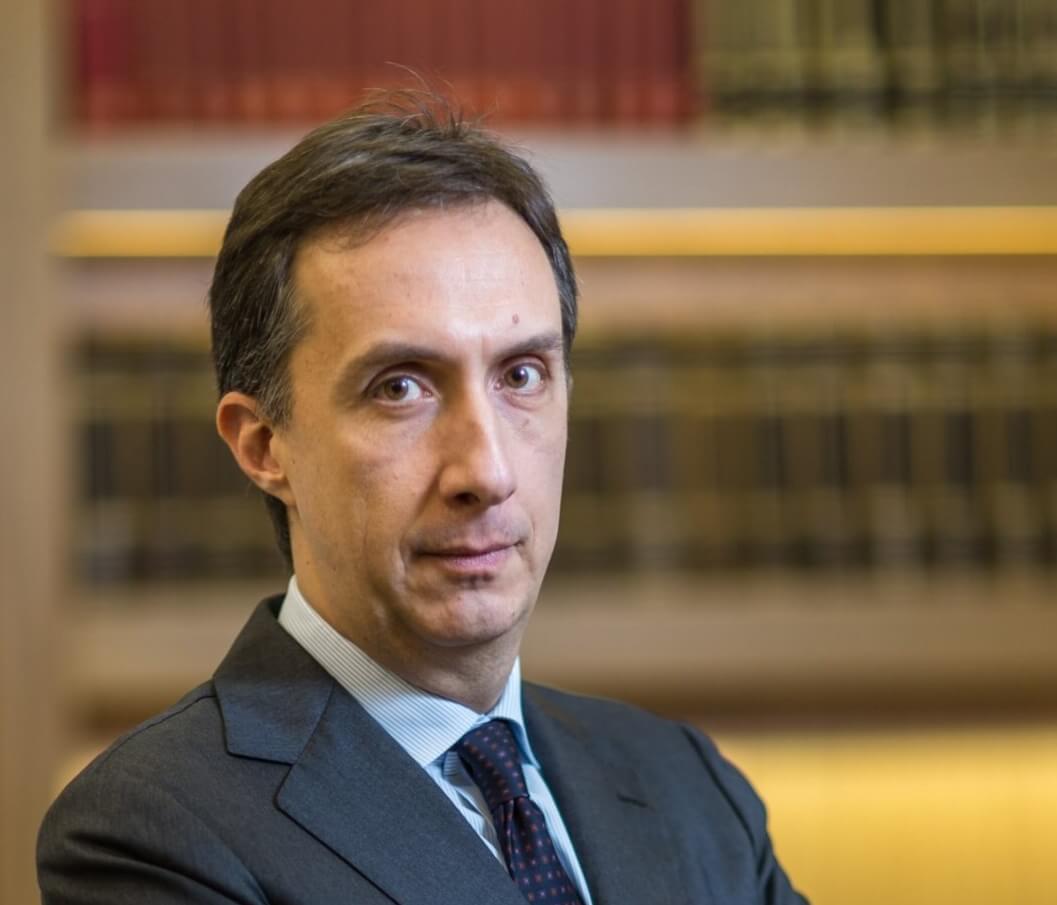Francesco Rotundo graduated in Economics in Pisa and subsequently obtained a Master’s in Innovation Management from Scuola S. Anna in Pisa in 1996. In his career of just over 20 years, he has gained significant experience in Human Resources within multinational companies and in family businesses in various industrial sectors. After starting his professional career at TIM, Francesco then moved to Salvatore Ferragamo, where he held various positions of responsibility in the HR department. He then moved to one of the Tax Offices of the Ministry of Economy where, after a period in HR, he also took on the role of Internal Auditing Manager. Since 2010, he has been HR Director at d’Amico Shipping Group. And it is precisely in his role as HR Director that Francesco will tell us how companies, and specifically the one he works for, are dealing with the coronavirus emergency while ensuring that work is carried out in full respect of the health and safety of employees.
The d’Amico Group is a world leader in maritime transportation in the dry cargo and product tanker sectors, offering international shipping services worldwide. Founded in Italy in the 1950s, thanks to its strong entrepreneurial tradition, the Group has established a strong presence on a global scale over time. Today, the d’Amico Group, headquartered in Italy, is present in the main financial and maritime centres around the world, with offices in Monaco, the United Kingdom, Ireland, Luxembourg, Singapore, the United States, Canada and India. The Group operates a fleet of around 100 vessels and has about 450 people in its offices and close to 3,000 seafarers employed in rotation on the ships it manages. Experience, expertise and social responsibility, combined with an attention to customer needs and operational safety, are the principles and values that guide the actions of every member of the Group. The continuous professional development of the team and the investment in a state-of-the-art fleet that respects the environment are among the Group’s top priorities.
Italy is going through a difficult and very unusual period with impacts on all sectors: how are you dealing with personnel management and the organisation of work? At the moment, as we speak, all Group employees are working entirely remotely. And remote working, following a policy that may be revised when restrictive measures are eased, will remain the main way of organising our work as long as the health emergency indicates (if not requires) that we take every possible measure to protect our colleagues’ health as far as possible. I can’t say that it was easy to move to remote working for all employees almost immediately, even by anticipating the lockdown measures in the different countries we work in, but we were certainly ready. There are many aspects, starting with information technology. In fact, our organization, because of the nature of the business and the international structure, has the management of long-distance relationships between colleagues in its DNA. Even beyond the “smart working” initiatives that started a long time before the coronavirus, we were all used to working with managers, partners and colleagues who were (and are) in different and distant locations. Of course, it was (and is) one thing when remote working is part of flexible and smart working policies and an approach of organizational “well-being”, it is quite another to be forced to work from home due to a pandemic. They are two very, very different situations.
The coronavirus emergency is posing many difficulties for the workplace, but at the same time it is giving us the chance to seize opportunities that we could maintain even once this difficult period is over. In your experience and, above all, in relation to current needs, do you think we are ready for remote working in general? The coronavirus emergency is forcing us to reflect on what the future of work will be like; how many of us, in many industrial sectors, can or must change the way we work. Many, with the latest concerns, are ready to drive a significant change within organisations. Just as I think there are those who can’t wait for everything to pass so they can go back to their old way of doing things. I don’t support remote working at all costs and across the board after the health emergency. I am fairly convinced that this dramatic experience will prompt and lead to a complete rethinking of the old model of the working relationship, on an organisational and contractual level. A model, in fact, that is already out of date, widely surpassed by well-known and even much debated phenomena (I’m thinking about discussions on agile organisations, new leadership models, the expectations of the younger generations, etc.). And from now on made definitively obsolete by what we’ve learned from the pandemic. We urgently need to review so many things in our organisations to avoid possible future shocks or mitigate the effects of shocks that we can’t avoid. Starting with the way we work and certainly also with remote working, which is not enough in itself.
Starting from this emergency, in what ways can we work to “exploit” and stimulate innovation? The technology we now have offers solutions that exceed in many ways our current needs. On the other hand, if I think about the role of HR managers, we will have to rethink operating practices and personnel management tools. But I’m sure that our technical capabilities will, once again, support organisational innovation and follow the course of change. It will, however, be more complex and it will take more time, even if it is a commitment we absolutely have to make, to effectively change the “soft” aspects of this new industrial revolution. Leadership models and organisational cultures will have to change because this event has unequivocally put people at the centre of organisations and has given priority to the health of our staff, far beyond health and safety regulations.
Over a very short period there have been changes that, under normal conditions, would have taken years to come about. What does this mean? Do you think we need to apply new rules to personnel management? I’ll answer you picking up on my last point, starting with two observations. Firstly. Our Group, during this very difficult time, has been able to ensure full continuity of its activities because the technologies (which are widely available) have allowed us to adopt a way of working (remote working, as we’ve already said) that has guaranteed maximum protection of the health of our staff. Secondly. In many other cases, we have unfortunately seen how the nature of production and technologies would have put the health of the people involved at too high a risk, therefore forcing the closure of activities. Do you agree that the real new development, though it may seem strange, is the health of people? We need to rethink how we work. “Smart working” cannot be reduced to the simplistic solution of “working from home”. The new rules will have to cover all those aspects on which the relationship of trust, the relationship between space, time and job performance (horrible expression) are based. And we will have to work hard on training, to be prepared to manage this inevitable period of change and be ready for the new developments that will follow.
Do you think that there will be significant impacts both in terms of employment and in economic terms relating to the situation we’re dealing with? What are the biggest risks we face? Unfortunately, everyone can see the serious impacts that the current crisis is having on employment and the economy. But I want to believe that this will be the temporary, dramatic effect of a completely extraordinary situation. On the other hand, I am confident that if we work towards redesigning how we work, business opportunities will come. And technology will be an enabler, not merely a destroyer of work. The impact of the coronavirus crisis would have had much greater if it had happened 10-15 years ago, when we wouldn’t have benefited from what technology has provided us with during these months of lockdown.
Beyond this undoubtedly extraordinary time, what is changing permanently in the workplace and what, on the other hand, will go back to like it was once the emergency is over? I hope that the perception of work is changing definitively, where people are actually at the heart of organisations, as I said before. Then, I confess, I continue to consider the “office” as the workplace of choice in some ways. Because I’m firmly convinced that the social dimension of the workplace (understood this time in the old way) adds a great deal of value to the professional and personal experience of all of us.
What is the role of HR managers at this particular time? Decisive. If they know how to (and need to) navigate and manage this path of change within organisations.


